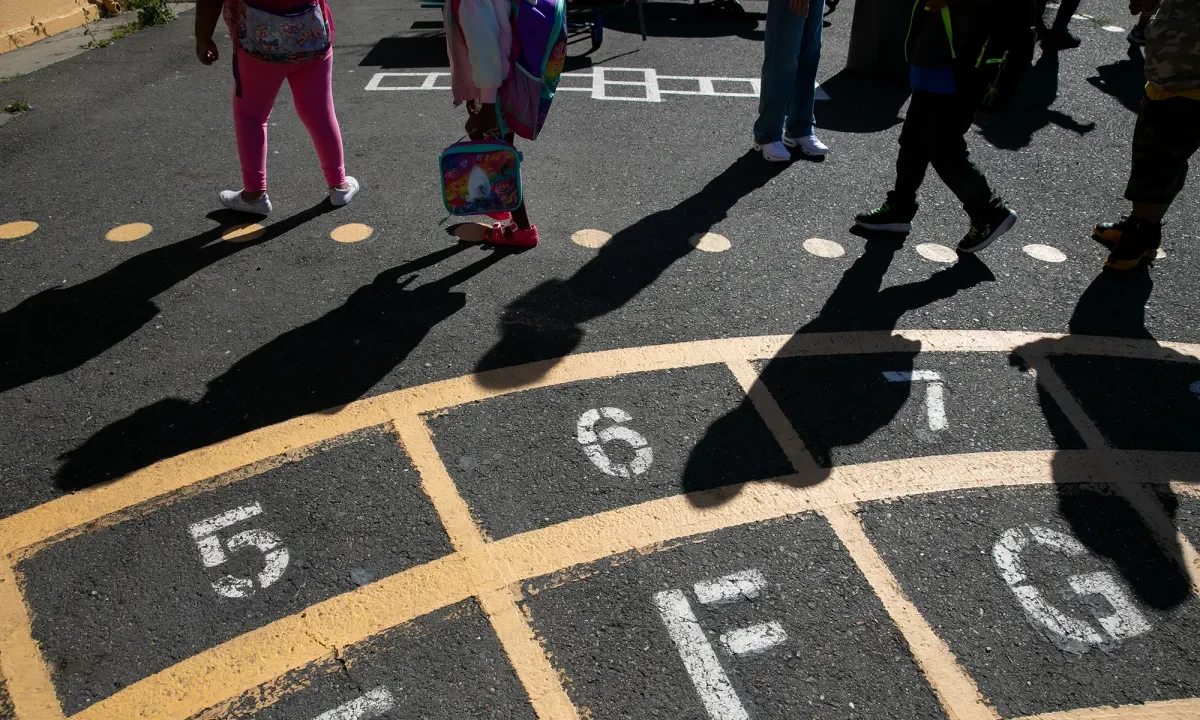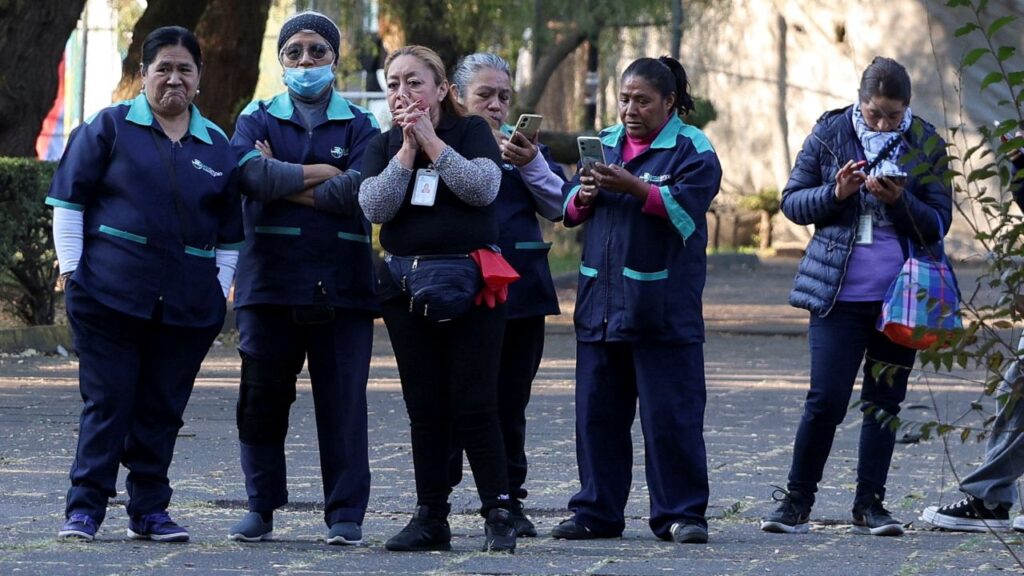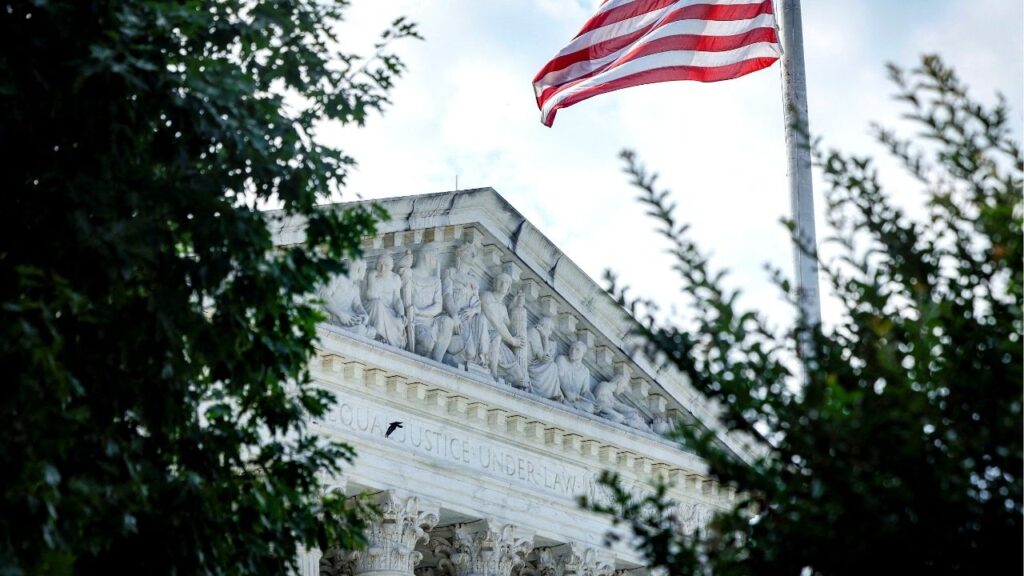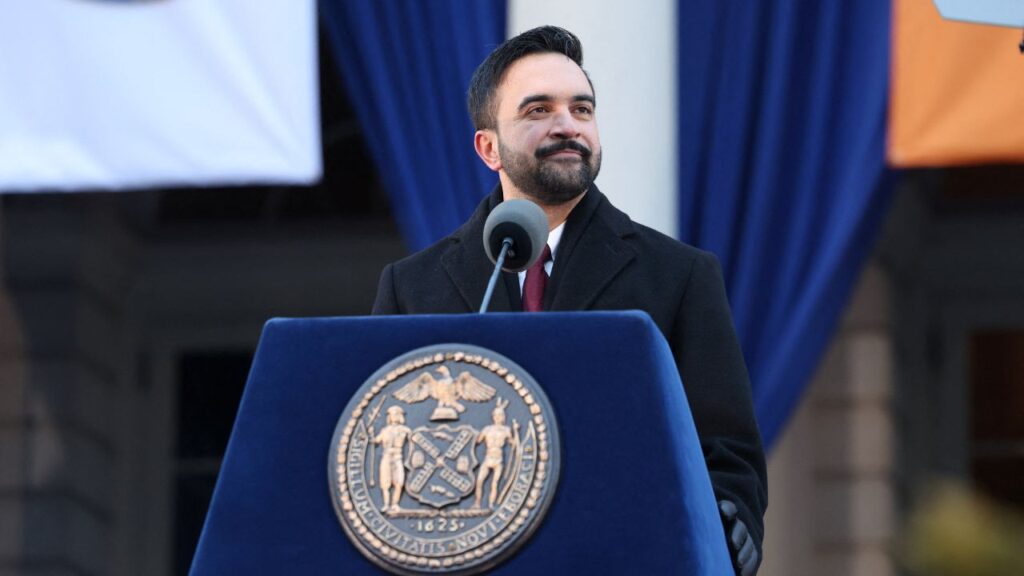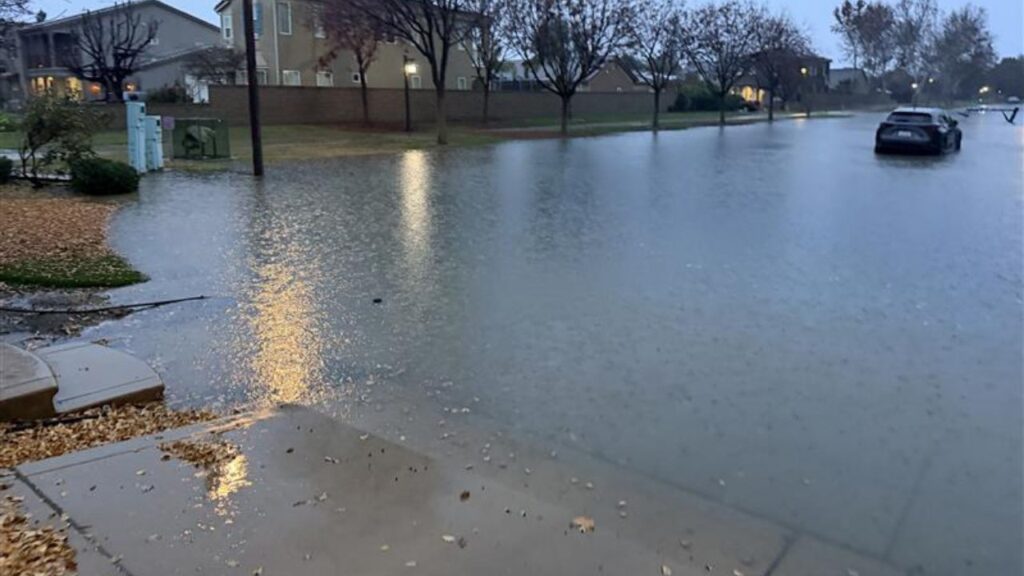Children wait outside of Laurel Elementary in Oakland on June 11, 2021. (CalMatters/Anne Wernikoff/File)

- This summer Congress passed the One Big Beautiful Bill, extending tax cuts but slashing billions from Medicaid.
- These funds sustain the regional centers that coordinate Early Start services for infants and toddlers with — or at risk for — developmental delays.
- Early Start is a bridge from surviving to thriving. When that connection is frayed, a child’s trajectory is altered, sometimes irreversibly.
Share
|
Getting your Trinity Audio player ready...
|
This commentary was originally published by CalMatters. Sign up for their newsletters.

Kelly Keck
Special to CalMatters
Opinion
When my daughter’s development stalled and then regressed, her bright personality dimmed. Doctors said to wait.
But as a clinician I suspected she needed urgent help — the kind that Early Start, California’s early intervention program, provides. What I feared most was losing the spark that made her unique.
Early Start met us right at our breaking point, offering a lifeline and hope. The program transformed fragility into possibility and gave my child a voice.
For me, it offered a circle of support that reminded me I wasn’t facing this journey alone. It introduced me to other parents facing the isolating darkness of uncertainty about their child’s future. This community became the difference between despair and determination.
From strengthening my daughter’s muscles to finding her first words, Early Start’s team also became my daughter’s and my biggest cheerleaders, celebrating progress and helping us navigate setbacks.
But the promise that shapes thousands of families like mine now hangs by a thread.
This summer Congress passed the One Big Beautiful Bill, extending tax cuts but slashing billions from Medicaid. In California, federal Medicaid funds sustain the regional centers that coordinate Early Start services for infants and toddlers with — or at risk for — developmental delays.
With California facing a multibillion-dollar deficit, the future of such early interventions looks precarious. Losing federal support means the state must fill the funding gap or scale back, thus putting therapy, progress and hope at risk for countless children and families.
I’ve witnessed what happens when families lose access to care. When speech therapy disappears, a baby’s first words vanish into silence. When physical therapy stops, a toddler’s first steps may never come.
From Surviving to Thriving
Early Start is not a luxury; it’s a bridge from surviving to thriving. When that connection is frayed, a child’s trajectory is altered, sometimes irreversibly.
The Department of Developmental Services has already warned that its caseloads are surging as staffing shortages worsen. Federal cuts will only amplify this with fewer therapists, longer waitlists and children stranded during the most critical period of their brain development.
Every week’s delay, every family told to “wait and see,” means consequences that may never be undone, developmental windows that will not reopen.
Supporters of the Big Beautiful Bill claim it will foster innovation and eliminate “waste.” But when waste means a therapist teaching a mother to feed her baby safely or a child learning to hold a crayon, the cruelty becomes clear. Efficiency cannot replace empathy. Those proposing it have never witnessed the triumph of a child relearning to walk after months of painstaking effort.
California lawmakers cannot reverse federal decisions, but they can refuse to let our youngest citizens be left behind. California should immediately create an Early Start stabilization fund to offset Medicaid cuts, ensuring therapy access during the critical brain development stage.
Legislators must require agencies to publicly track staffing shortages and therapy delays, making inequities visible and impossible to ignore.
California’s congressional delegation must fight to protect the federal Individuals with Disabilities Education Act Part C funds, which guarantee early intervention access. Election-year speeches about potential aren’t enough; lawmakers must safeguard the infrastructure that makes potential possible.
Parents Need Early Start
My work in the Neonatal Intensive Care Unit only reinforces what’s at stake. Every day, I meet parents whose babies will need Early Start. Families finally bring home babies ready to grow, only to find themselves mired in complex systems of authorizations, denials, and delays.
If we fail to act, those babies will confront mounting waitlists, fewer specialists and programs stretched to the breaking point.
Early Start caught my daughter and me before we fell through the cracks. For families in similar situations, losing this safety net threatens more than milestones; it threatens hope. When we protect early intervention, we save futures — one child at a time.
This article was originally published on CalMatters and was republished under the Creative Commons Attribution-NonCommercial-NoDerivatives license.
About the Author
Kelly Keck has a child with special needs and is a neonatal nurse practitioner. She wrote this for CalMatters.
RELATED TOPICS:
Categories

Oil Prices Settle Lower After Biggest Annual Loss Since 2020



